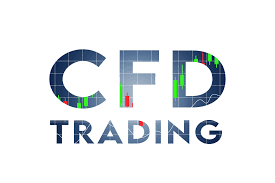
Discover the Best CFD Trading Markets
The financial trading landscape has evolved significantly over the years, with Contracts for Difference (CFDs) becoming increasingly popular. The best CFD trading markets provide traders with unique opportunities to profit from price movements in various assets without actually owning the underlying asset. This article will explore the best CFD trading markets, the advantages of trading CFDs, and key strategies and tips to enhance your trading experience. For more information on reliable brokers, check out best cfd trading markets https://bestbrokercfd.com/cfd-brokers/.
What Are CFDs?
Contracts for Difference (CFDs) are financial derivatives that allow traders to speculate on the price movements of various financial instruments such as stocks, commodities, indices, forex, and cryptocurrencies without owning the underlying asset. When trading CFDs, you enter a contract with a broker, agreeing to exchange the difference in the asset’s price between the opening and closing of your position.
Advantages of CFD Trading
- Leverage: CFDs offer the ability to use leverage, allowing traders to control larger positions with a smaller amount of capital. This means that both profits and losses can be magnified.
- Diverse Markets: Traders have access to a wide variety of markets, including stocks, commodities, currencies, and indices, enabling them to diversify their trading portfolio.
- No Ownership Required: You can trade on price movements without needing to own the underlying asset, which can save on additional costs such as storage and maintenance.
- Short Selling: CFDs allow traders to profit from falling markets through short selling, which is not always possible with traditional asset trading.
Best CFD Trading Markets
1. Stock Markets
One of the most popular markets for CFD trading is the stock market. Traders can speculate on the price movements of individual stocks or indices (like the S&P 500 or FTSE 100). The stock CFD market is vast, allowing traders to access multinational companies and emerging startups alike.
2. Forex Markets
The forex market is the largest and most liquid financial market globally. Trading CFDs in forex allows traders to leverage their capital and take advantage of price movements between different currency pairs like EUR/USD or USD/JPY. The 24-hour trading cycle of the forex market provides ample opportunities for traders at any time of the day.
3. Commodity Markets
CFDs are available for a wide range of commodities, including precious metals (like gold and silver), energy (like oil and natural gas), and agricultural products (like wheat and corn). Commodity trading can be influenced by various global events, economic reports, and supply and demand factors, making it an exciting market for CFD traders.

4. Cryptocurrency Markets
With the rise of digital currencies, cryptocurrencies have become a popular CFD trading market. Traders can speculate on the price movements of well-known cryptocurrencies like Bitcoin, Ethereum, and Litecoin, without needing to own them. The cryptocurrency market can be highly volatile, offering potential for significant gains—and losses—for CFD traders.
5. Indices
Trading CFD indices allows traders to invest in the overall performance of a group of stocks rather than individual companies. Popular indices include the Dow Jones, NASDAQ, and DAX. This market is ideal for traders looking for exposure to the performance of an entire sector or economy without the risk of individual stock volatility.
How to Choose the Best CFD Trading Market
Choosing the right CFD trading market involves several factors that can affect your trading performance. Here are some tips to consider:
- Market Volatility: Assess the volatility of the market you wish to trade. Higher volatility can present more opportunities for profit but also increased risk.
- Liquidity: Liquidity refers to how easily an asset can be bought or sold without affecting its price. Look for markets with high liquidity to ensure you can enter or exit positions as desired.
- Personal Interest: Consider your interests and knowledge about specific markets. Familiarity can greatly enhance your trading performance and decision-making process.
- Regulations and Costs: Make sure to understand the regulatory environment of the market and the costs associated with trading CFDs, including spreads, commissions, and overnight fees.
Key Trading Strategies for CFD Markets
To succeed in CFD trading, it is essential to adopt effective trading strategies. Here are some popular strategies that traders use:
- Day Trading: Day traders open and close positions within the same trading day to capitalize on short-term price fluctuations.
- Swing Trading: Swing traders hold positions for several days to capitalize on expected upward or downward market changes.
- Scalping: Scalpers aim to make small profits from numerous trades throughout the day, often holding positions for only a few minutes.
- Position Trading: Position traders take a long-term approach, holding positions for weeks, months, or even years based on fundamental analysis.
Risk Management in CFD Trading
Effective risk management is crucial for CFD traders to protect their capital. Here are a few strategies:
- Use Stop-Loss Orders: Set stop-loss orders to automatically close losing positions at predetermined levels, minimizing potential losses.
- Diversify Your Portfolio: Avoid putting all your capital into one market or asset. Diversification can reduce risk exposure.
- Limit Leverage: While leverage can amplify profits, it can also magnify losses. Limit your leverage to reduce risk.
- Continuous Education: Stay informed about market trends and strategies through continuous education and training.
Conclusion
CFD trading presents exciting opportunities for traders to engage with a wide range of markets, from stocks and forex to commodities and cryptocurrencies. By understanding the best CFD trading markets, selecting appropriate strategies, and employing effective risk management techniques, traders can enhance their chances of success in this dynamic environment. As the market continues to evolve, staying informed and adaptable will be key to navigating the world of CFDs effectively.